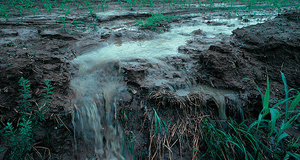The Importance Of Canadian Identity: Michael Adams' Fire And Ice and Richard Bocking's Canada's Water
By
2011, Vol. 3 No. 04 | pg. 1/1
KEYWORDS:
Michael Adams’ Fire and Ice and Richard Bocking’s excerpts from Water Export: The Canadian Response present two very distinct scenarios in which the relationship between Canada and the United States is played out. Fire and Ice consists of mostly raw data collected from surveys conducted around Canada and America over a period of nearly 10 years, whereas Booking’s text simply acquaints readers with the political issue of exporting Canadian water to the United States. While the methods used in the texts are clearly different, both texts reveal stark political and cultural distinctions between the two nations. Both authors depict a conflicting relationship and an ever growing ideological gap between Canadians and Americans. These differences in culture and identity must force Canada to minimize relations with the United States in order to remain truly autonomous. Canada is depicted as autonomous and separate from America almost immediately in both texts. In Fire and Ice, Adams is quick to point out the differences in the political spectrum in Canada and America (xiii). He draws a parallel between Canada’s Conservative party and America’s Democratic Party in order to highlight a difference in values, a theme which he carries throughout his book. He also emphasizes on several decisions that Canada has made over the years – including former Canadian Prime Minister Jean Chrétien’s decision not to join the Iraq war—as proof that Canada is stepping out of its neighbour’s shadows. Similarly in Water Export: The Canadian Response, the idea of ``continentalism`` is dismissed because it is ``threatening the foundations upon which Canada has been built`` (Bocking 43). Bocking is also concerned that if more and more Canadian commerce and industry falls into American hands then Canada`s independence becomes a myth (175). Canadians do not want to export their water to the United States for numerous reasons. But primarily it is because Canada sees the water as part of its heritage, and thus its own distinct identity. The fear of Canada losing any part of that identity would mean a loss in autonomy. After establishing Canada as a distinct nation from the United States, both texts begin to highlight the conflicting relationship between the two countries and how it relates to Canada`s autonomy. In particular, America is depicted to be completely indifferent to Canada`s sacrifices. Fire and Ice provides the example of President Bush failing to mention a “friendly fire” incident in Afghanistan which resulted in the deaths of 4 Canadian soldiers: ``Was it too much to expect that the American president would at least pretend to be dismayed`` (Adams 49). Moreover, Bush also failed to thank Canada when naming all the nations that contributed to rescue efforts after the September 11th tragedies. This attitude also appears in Bocking`s text. America wants Canada’s water to be redirected south, without regard to the impact it will have on Canada`s environment and what effects it might have on Canada’s wildlife and the Aboriginal People who live off the water. Bocking echoes this concern: ``opposition to export has been swinging around to stress the environmental deterioration`` (45). The Americans do not seem to care about Canada`s wilderness. Both of these points are significant because they strengthen the position for remaining separate from America. Canada and its land will not be appreciated by its southern neighbour and therefore the nation must look elsewhere to form stronger ties.As mentioned above, the environment is a sensitive and important issue with Canadians and both texts reflect this attitude. On his Socio-Cultural map in Fire and Ice Michael Adams places all surveyed regions in Canada in the Idealism and Autonomy quadrant. This quadrant has the following values related to the environment: ``Global Consciousness and Ecological Concern`` (Adams 31). Effectively, members of this quadrant are considered to be environmentalist, none of the other quadrants posses these values. This is comparable to Bocking`s description of Canada as a whole. As previously mentioned Canadians see the wilderness as their heritage and part of their identity. So not only would Canada lose its autonomy but the environmental impact could be tragic. The construction of dams would have a negative impact on the fishing industry. Furthermore the diversion of water would also effect the growth of trees and all other wildlife in Canada. In a sense the two texts depict Canadians as being more environmentally friendly their southern neighbours. With all the aforementioned similarities between the two texts, it should be noted that there are several important differences in how the two texts depict the Canadian/American relationship. In Water Export: The Canadian Response, the Canadians are characterized as political lightweights who`s opinions are insignificant and the export of their water is ``inevitable`` (Bocking 33). They do not seem to be putting up much of a resistance; in fact there were several Canadians who agreed with exporting the water, including former Prime Minister Pierre Trudeau. Bocking portrays Canadians as being inferior to their American counterparts and Canada seems afraid to be annexed as a colony if it becomes too engaged with America. In contrast, Adams paints a different picture of Canadians in Fire and Ice. He depicts Canadians to be equal if not superior to the Americans as far as intellect is concerned. The evidence again is in his Socio-Cultural map, pertaining to the regions in North America (Adams 81). The closest American region to the Canadians is New England. Adams reasons that the New England region is home to more universities per capita than any other U.S region therefore producing more academics than anywhere else in the country (83). According to Adams` only the smartest region in the United States can share the Idealism and Autonomy quadrant with the Canadians. He depicts Canadians as being generally more aware of politics and the events around the world as compared to the Americans. As a result of this shift in intellect, Michael Adams portrays Canadians as being more confident in their decision making when dealing with the Americans. He says: ‘Canadians, who used to wait to be told by their betters what to do and how to think, have become more sceptical of traditional authority and more confident about their own personal decisions and informed arrangements` (Adams 52). Canada`s confidence to make her own decisions led to the recognition of same sex marriages and decriminalization of marijuana. Alternatively in Water Export: The Canadian Response, the Canadians are not very confident when dealing with the United States. At some parts of the passage it seems like the Canadians have no choice but to give into American demands to redirect the water (Bocking 33). Due to the continentalism mentality mentioned before, some Canadian politicians are convinced that since the water is on the same continent with America they must share it with their neighbour (Adams 43). It is evident that Canada is intimidated by the enormous size and political clout of its neighbour. The two texts also depict the differences between the governments of the two nations. In Water Export: The Canadian Response, the American government is depicted as one solid unit, with a common goal of stripping Canada of its natural resource, water. The Canadian government however seems uncertain of itself. There are many conflicting views coming from different regions of the nation on how to deal with the issue. Some MP`s are against the idea while the Prime Minister is in support of it (Bocking 33). Even though it is normal for disagreements to occur in politics, it is strange to see a divide in Canada when it comes to such a major issue. At the same time In Fire and Ice the Canadian government is depicted as a single unified and organised body while the American government is completely split between its two parties (Adams xii). Adams talks about the relative ease with which the Canadian government operates its system, and everybody, including the citizens, seem to be on the same page. Because of Canada`s shared values of Idealism and Autonomy the entire nation, it appears, also approves of the government`s policies, the three major differences being gun control, universal health care and the decriminalization of marijuana. These three major issues have also become part of Canada`s distinct identity, and how it separates itself from America. The Canadian way of life stems from a truly endangered society. Only a handful of nations in the world boast Canada`s quality of life and standard of living. Canada can distinguish itself from every nation in the world in its own unique way. The differences in the political systems and Canadians’ environmental conscientiousness are just the tip of the iceberg when it comes to the overall differences in culture and values that exist between Canadian and Americans. For Canada to sustain itself as a sovereign nation and remove itself from America’s shadow, it must protect its identity.
References Adams, Michael. Fire and Ice. Penguin Canada, 2009. Print Bocking, Richard C. Water Export: The Canadian Response from Canada's Water: For Sale? Lorimer, 1972, 32-49 and 166-179. Suggested Reading from Inquiries Journal
Inquiries Journal provides undergraduate and graduate students around the world a platform for the wide dissemination of academic work over a range of core disciplines. Representing the work of students from hundreds of institutions around the globe, Inquiries Journal's large database of academic articles is completely free. Learn more | Blog | Submit Latest in International Affairs |


















